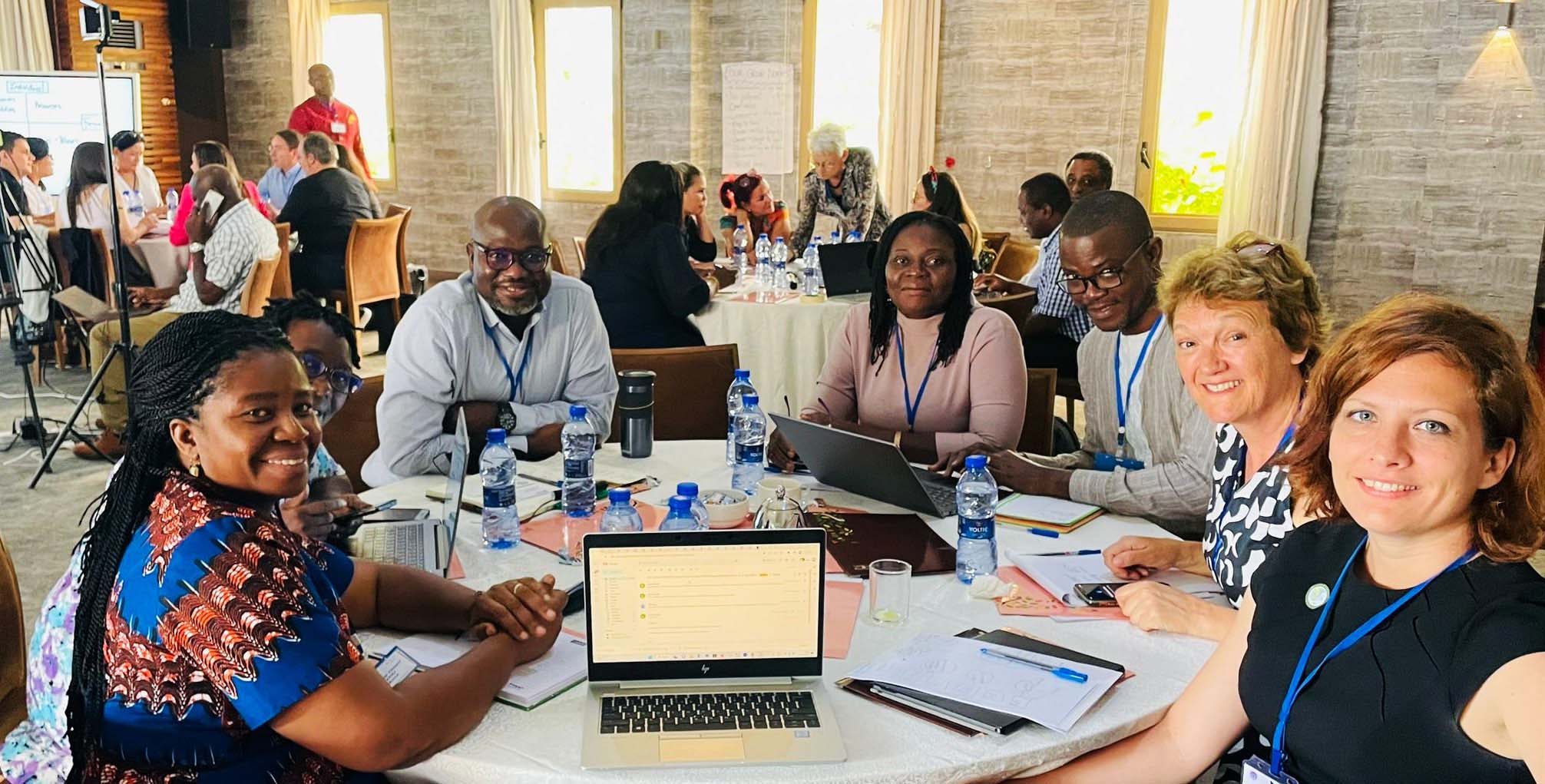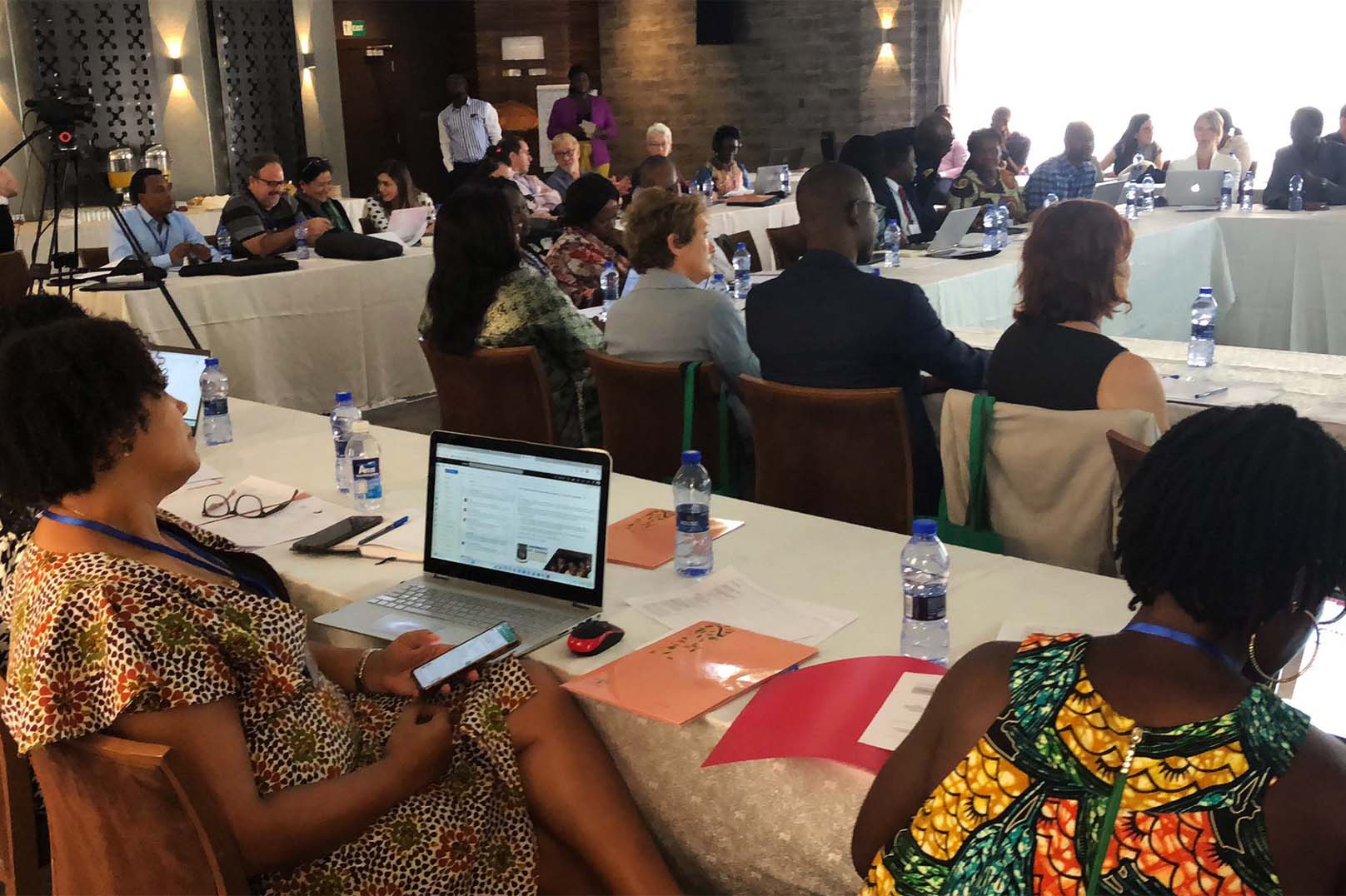MATS
Project Detail
MATS aims to identify key leverage points that foster the positive and reduce the negative impacts of agricultural trade on environmental sustainability and human well-being. Focus is on improving the governance, design and implementation of trade policy at national, EU, African and global levels. Particular attention is paid to SDG1 ‘No Poverty’, SDG2 ‘Zero Hunger’ and SDG3 ‘Good Health and Well-being’, as well as SDG6 ‘Clean Water’, SDG13 ‘Climate Action’ and SDG15 ‘Life on Land’.
MATS will develop and pilot new tools for a systemic analysis, and assessment, of the interactions between agricultural trade, investments, sustainability, and development.
MATS will develop and pilot new tools for a systemic analysis, and assessment, of the interactions between agricultural trade, investments, sustainability, and development.
- Collaborating institutions/partnership: University Polytechnic of Madrid (UPM), Spain
- Duration:12 months
- Funding source (donor):European Union via UPM (Universidad Politécnica de Madrid)
Participating scientists (with PI)
Specific Objective
MATS aims to identify key leverage points that foster the positive and reduce the negative impacts of agricultural trade on environmental sustainability and human well-being. Focus is on improving the governance, design and implementation of trade policy at national, EU, African and global levels. Particular attention is paid to SDG1 ‘No Poverty’, SDG2 ‘Zero Hunger’ and SDG3 ‘Good Health and Well-being’, as well as SDG6 ‘Clean Water’, SDG13 ‘Climate Action’ and SDG15 ‘Life on Land’.
MATS will develop and pilot new tools for a systemic analysis, and assessment, of the interactions between agricultural trade, investments, sustainability, and development.
MATS will develop and pilot new tools for a systemic analysis, and assessment, of the interactions between agricultural trade, investments, sustainability, and development.
Expected Outcome
A review and synthesis of the results of global trade modelling studies, a set of 15 in depth country, regional and product case studies. A multi-stakeholder back casting approach that builds on recent research related to transformative change and social innovation, and that uses novel participatory methods and platforms to exploretransition pathways towards sustainable trade. Clustering with other trade-related research projects, and a major role for sector representatives, social movements, and policymakers in framing analyses, co-assessing linkages, and deriving policy recommendations.
Major Outcomes
The major outcomes in 2023 included the project Team undertaking the literature review and identification of key stakeholders. In addition, they collaborated with a partner to develop a model for the Ghana poultry sector to identify key drivers and policy to make it more sustainable.
Impact on the Economy
The study underscores the significant role of the poultry sector in Ghana’s national economy, highlighting its potential to contribute to economic growth, employment, and food security. The detailed analysis reveals the sector’s current challenges, including high production and transaction costs, dependence on imported day-old chicks (DOCs), and infrastructural deficiencies.
Major policy action needed
Based on the insights from the project, several major policy actions are necessary to address the identified challenges and leverage the opportunities within Ghana’s poultry sector: Support for local production: Policies should aim to bolster local feed production, reduce input costs, and enhance hatchery capacity. This can be achieved through subsidies, incentives for local feed ingredient production, and support for the establishment of local hatcheries.
- Infrastructure development: Investment in infrastructure, including processing facilities, cold storage, and transportation networks, is critical. These investments will help reduce post-harvest losses, improve market access, and enhance the competitiveness of locally produced poultry products.
- Regulatory and quality standards: The development and enforcement of quality standards for poultry products are essential. This includes implementing strict biosecurity measures, regulating the use of antibiotics, and ensuring the quality of DOCs and feed.
- Research and development: Investing in research and development to improve poultry breeds, develop cost-effective feed formulations, and innovate sustainable farming practices can drive the sector’s growth.
- Market development: Policies should also focus on developing and promoting markets for locally produced poultry products. This could involve marketing campaigns, establishing farmer cooperatives, and facilitating linkages between producers and consumers.







